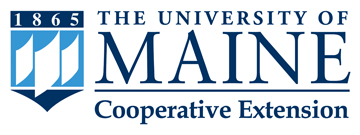
UMaine Extension expert offers advice on lawns damaged by fungal disease due to drought
University of Maine Cooperative Extension plant pathologist Alicyn Smart recently began receiving reports of Maine lawns turning black in certain areas during the recent drought. Smart determined the cause is a fungal disease commonly known as “black lawn,” which is caused by the pathogen Cladosporium sp. It occurs when grass becomes stressed, such as times of sparse rainfall. Some landscapers in the state report not encountering it at all throughout their careers.
Smart, who directs UMaine Extension’s Plant Disease Diagnostic Lab, says the best response is to reseed damaged areas. Photos from affected lawns and UMaine Extension publications about correctly restoring damaged areas are now available on a new black lawn resource page at https://extension.umaine.edu/ipm/ipddl/black-lawn/. The disease does not appear to affect vegetables and flowers, but could affect other grasses.
For more information contact Alicyn Smart at 207-581-3883 or alicyn.smart@maine.edu.